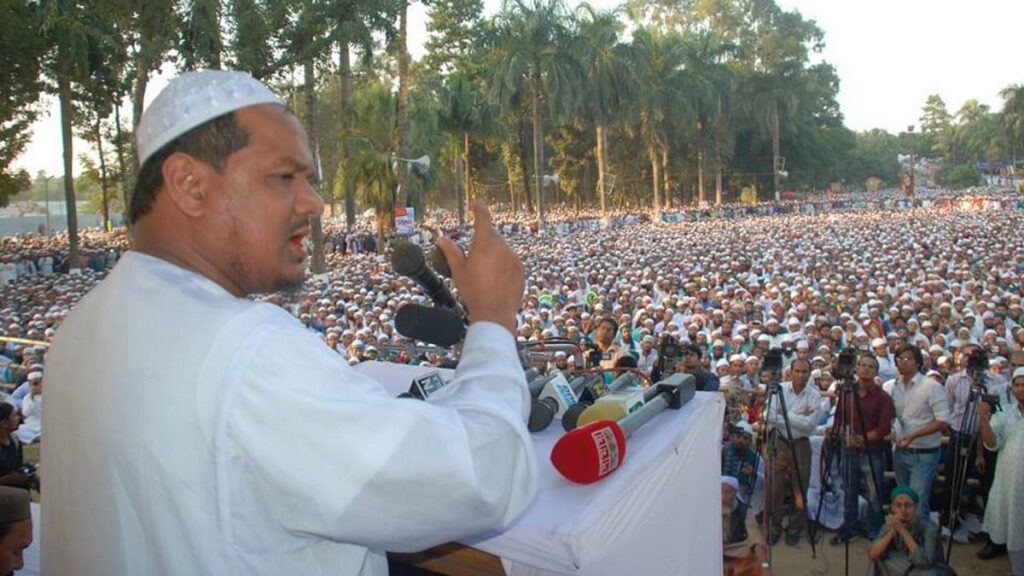New Delhi: Islam, if the Islami Andolan Bangladesh (IAB) is to be believed, is facing a grave threat—from teenaged girls playing football. Over the past month, three football games have been disrupted by workers of the Islamist political party with Deobandi roots.
On 6 February, the administration in Rangpur’s Taraganj had to impose Section 144 around the venue after mob of madrasa students stormed the football field and tore down fences during an inter-district football game between Joypurhat and Rajshahi girls football teams.
The protests were led by Ashraf Ali, Taraganj unit president of the IAB.
Girls playing football, the protesters said, was ‘anti-Islamic’. The vandalism was live-streamed on Facebook and marked a third such instance in less than a month when a girls’ football match was disrupted by self-appointed guardians of Islam.
Islami Andolan Bangladesh, the outfit at the centre of this controversy, was set up in 1987 by Fazlul Karim under the name Islami Shashontantra Andolan (Islamic Governance Movement) and adopted its current name in 2008. The IAB had called for nationwide demonstrations to protest women’s football as early as 2004. The most recent protests came in the backdrop of the Bangladesh women’s football team lifting the South Asian Football Federation (SAFF) Women’s Cup for a second consecutive time.
In recognition of this feat, the Ministry of Cultural Affairs of Bangladesh conferred the Ekushey Padak, Bangladesh’s second-highest civilian award, upon the team.
Referring to the disruption by IAB workers who, prior to the 6 February incident, disutrbed two other girls’ football matches—later held under the watch of the local administration—columnist Hassan Meer noted in The Daily Star on 31 January that the “inaction (by authorities) is an endorsement of the very forces that seek to limit women’s freedom.”
“By cancelling the match, they validated the notion that girls in sports are controversial, rather than natural and celebrated,” wrote Meer.
The interim government led by chief adviser Muhammad Yunus maintained that these were isolated incidents. Yunus’s press secretary Shafiqul Alam said hundreds of women’s sporting events were held across Bangladesh in January without any disturbances.
But the incidents have revived fears about the power wielded by religious fundamentalists in Bangladesh in the aftermath of the ouster of former prime minister Sheikh Hasina.
Referring to disruptions caused by Islami Andolan Bangladesh in the name of Islam, columnist Arafat Rahman wrote for The Daily Star on 29 January, “This is bigger than football. This is about power. These mobs know they can get away with it because they always do. They have burned Hindu homes, vandalised shrines, assaulted teachers, and lynched people over blasphemy claims—yet they walk free.”
“The script never changes. The government watches, law enforcement stands by, and justice is never served,” he added.
Hasina too in her virtual address earlier this month highlighted the gender-based discrimination women face in Bangladesh. “I brought cricket and other local sports to this country, and now girls, who are winning international football matches, are not being allowed to play. Why are girls not allowed to play?”
(Edited by Amrtansh Arora)
Also Read: Hasina’s Houses of Horror to Yunus’ Devil Hunt – is Bangladesh truly changing for better?

